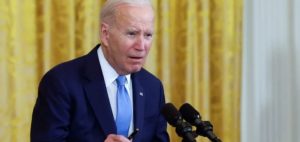
According to fresh information from the Federal Reserve Bank of New York, the percentage of student loan defaults decreased by three percentage points between the third and fourth quarters of 2022.
To put that into perspective, the Fed says that at the end of 2022, delinquent loans totaling $34 billion were still considered current.
The start of President Joe Biden’s “Fresh Start” initiative was what caused the adjustment rather than an unexpected rush of consumers refinancing their debts. The scheme, which was unveiled in April of last year, intends to provide troubled borrowers a sort of “pass-through” to better manage their loans.
When you sign up for the Fresh Start program, your loans are “refreshed,” providing you access to loan repayment and student loan forgiveness programs. Since the fresh start doesn’t count as rehabilitation and the delinquent is erased from your credit report, you still have the choice to pay off your loans even if you default again.
Because they cannot afford their monthly payments, student loan borrowers frequently default on their debts. The Biden administration has however drawn attention to the fact that many borrowers’ debts could have been reduced to zero through income-based repayment schemes, so preventing numerous defaults. They are given another opportunity to do so through the Fresh Start.
When the initiative was announced last spring, the administration said it would benefit 7.5 million borrowers, many of whom were Pell Grant recipients or first-generation college students.
However, the restart is not automatic. Borrowers can visit myeddebt.ed.gov or call 1-800-621-3115 to see if their loans are eligible for the program and enroll in the program. According to a fact sheet from the Department of Education, most borrowers are required to make long-term payment arrangements.
Federal student loans generally default when a borrower misses payments for more than 270 days. ED outlines a number of serious consequences of defaulting on your loans, including the immediate payment of the entire balance of your debt, reporting defaults to credit bureaus, which can significantly damage your credit score, and the possibility of your wages being garnished.
Although the pandemic-related payment pause halted wage garnishments, the pause, along with some of these other measures, is scheduled to end on or about June 30. The Fresh Start program and avoid those outcomes.






